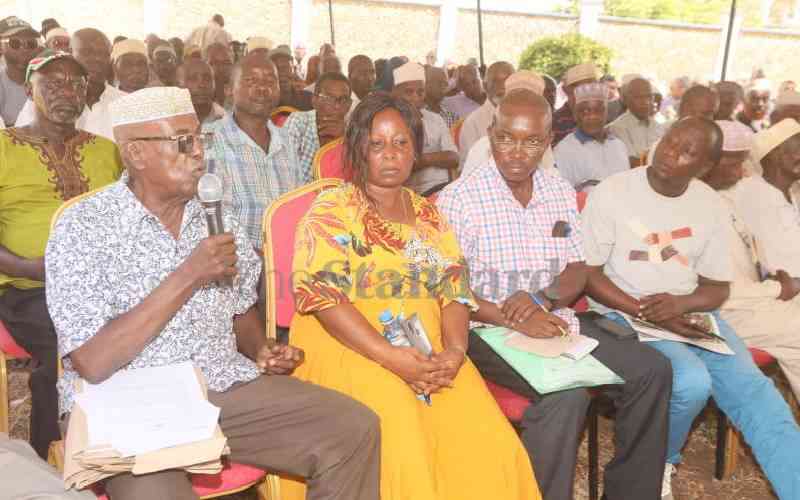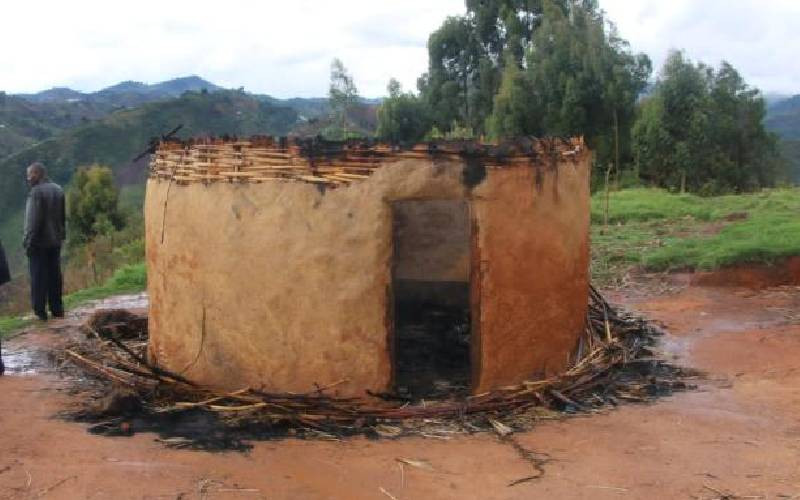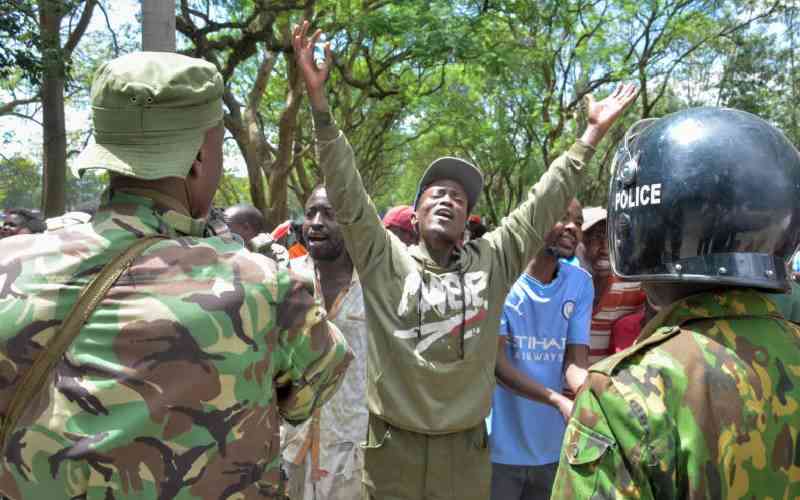Good morning, Bwana Francis Xavier ole Kaparo. I don’t know if you have any hang-ups about not being addressed as mheshimiwa (honourable), which is a major affliction among politicians. They cherish to be addressed as mheshimiwa all their lives, even when they served for just one term.
The disease is more acute among technocrats: a civil servant building a road isn’t satisfied until he is addressed as “Engineer”.
But that’s not the reason I am writing. Actually, there is a sense of serendipity to this all; I had been thinking about you when you surfaced last week.
In keeping with the Kenyan tradition, I suspect your phone isn’t ringing as incessantly as it used to when you were the Speaker of the National Assembly.
But trust me, I would have called you if I had your number, and relay the message that I received from my eight-year-old son, Tumaini, earlier this week.
“Daddy,” he whispered when I called him on Tuesday evening. “Be careful. There are people fighting in Kitengela and they have lit a fire on the road...”
When children are made to bear anxieties over their parents’ safety, and not vice versa, I start having very serious concerns about the future.
But what tugged at the heartstrings was my knowledge that the bonfires on the Nairobi-Namanga highway on Tuesday, a choreography that was repeated on Wednesday, had something to do with my son.
After all, the skirmishes targeted traders perceived as outsiders in this part of the country.
War in Kitengela
To be on the safe side, we decided Tumaini should skip school on Wednesday, as we monitored the situation. On Thursday morning, Tumaini cautioned, as we drove out: “Remember, there is war in Kitengela...”
Tumaini was born in the shadow of a war, in 2007, so his military lexicon is inborn.
But even that darkest hour did not dim my optimism about his future; I gave him a name that reasserted my faith in my country.
Even between sojourns in Europe and North America, I insisted Tumaini should grow and live in full dignity of his country and its people.
Now I’m starting to wonder if it were better for him to bear racism and the bitter winters in America, than the heat of prejudice in his own country.
Stay informed. Subscribe to our newsletter
Bwana Kaparo, I heard you speak last week. You said: “We have a lot of bitterness, communities hating one another because they probably think their miseries; their lack of development and their backwardness is a result of others having more resources than they do.”
Exact grievance
I presumed you had Kitengela in mind when you spoke, for that was the exact grievance when traders fought this week in the township.
I hear when the traders who previously occupied the market insisted on their regaining their space, they were told by public officials, in broad daylight, to look at the back of their identity cards.
You must know the details on the back of your ID show where the card was issued, which hints at one’s presumed place of origin. I couldn’t think of worse hate-speech.
This sort of incitement, I hear, has been adopted as the official policy by the county administration. The lands registry remains shut for years because one community is said to be at risk of being hoodwinked into relinquishing its land to others. The Constitution is not considered an adequate safeguard.
The backwardness about such thinking is that it locks out potential businesses that could create revenues for the county, and open up opportunities for the locals.
When the problem of illicit liquor was highlighted in Kajiado, the narrative was changed to imply those selling the brews had stolen the lands from the drunken men.
In a certain sense, Tumaini’s unprejudiced mind understands this to be a war between pride and prejudice, truth and deception, prosperity and destruction.
Your mandate as the chair of the National Cohesion and Integration Commission is to ensure Tumaini’s future in any corner of this country.
When are you going to call for order in Kajiado County?
 The Standard Group Plc is a
multi-media organization with investments in media platforms spanning newspaper
print operations, television, radio broadcasting, digital and online services. The
Standard Group is recognized as a leading multi-media house in Kenya with a key
influence in matters of national and international interest.
The Standard Group Plc is a
multi-media organization with investments in media platforms spanning newspaper
print operations, television, radio broadcasting, digital and online services. The
Standard Group is recognized as a leading multi-media house in Kenya with a key
influence in matters of national and international interest.
 The Standard Group Plc is a
multi-media organization with investments in media platforms spanning newspaper
print operations, television, radio broadcasting, digital and online services. The
Standard Group is recognized as a leading multi-media house in Kenya with a key
influence in matters of national and international interest.
The Standard Group Plc is a
multi-media organization with investments in media platforms spanning newspaper
print operations, television, radio broadcasting, digital and online services. The
Standard Group is recognized as a leading multi-media house in Kenya with a key
influence in matters of national and international interest.









